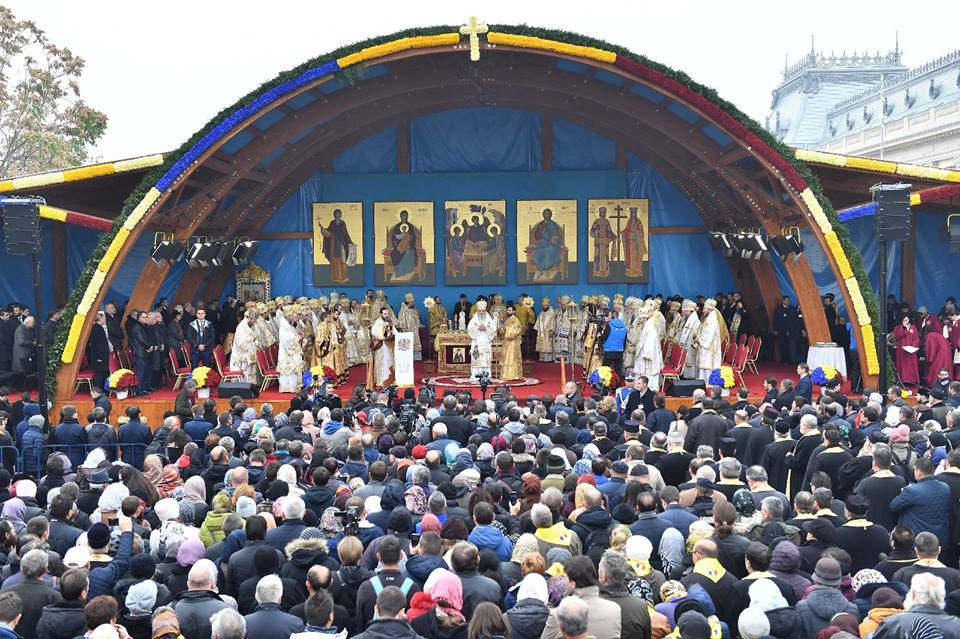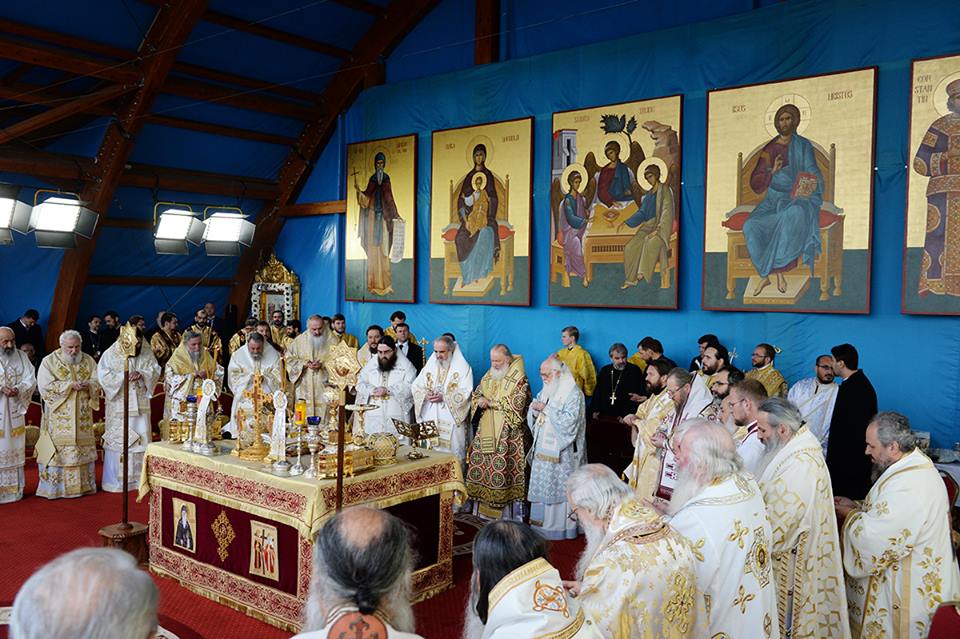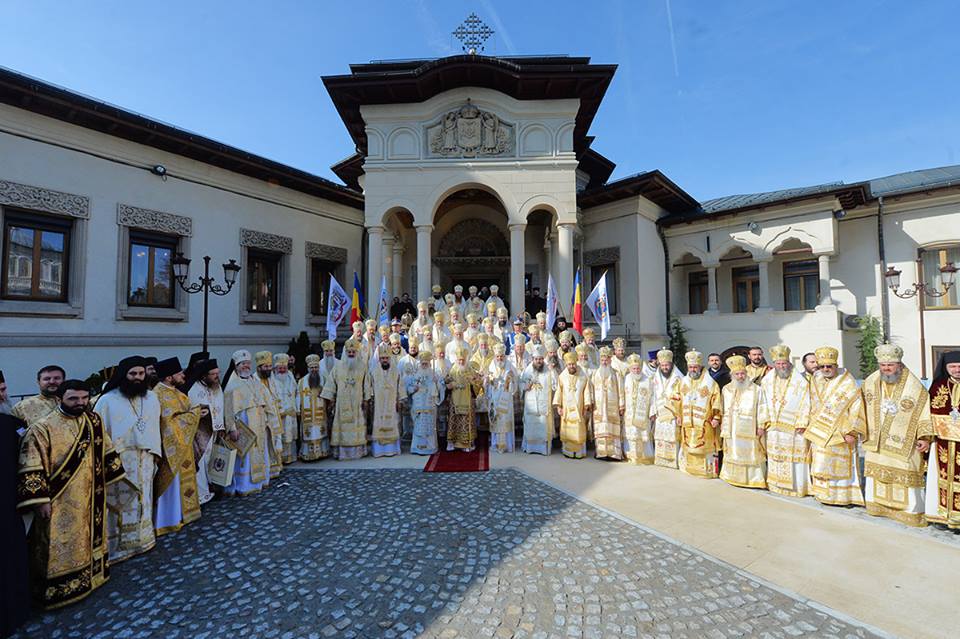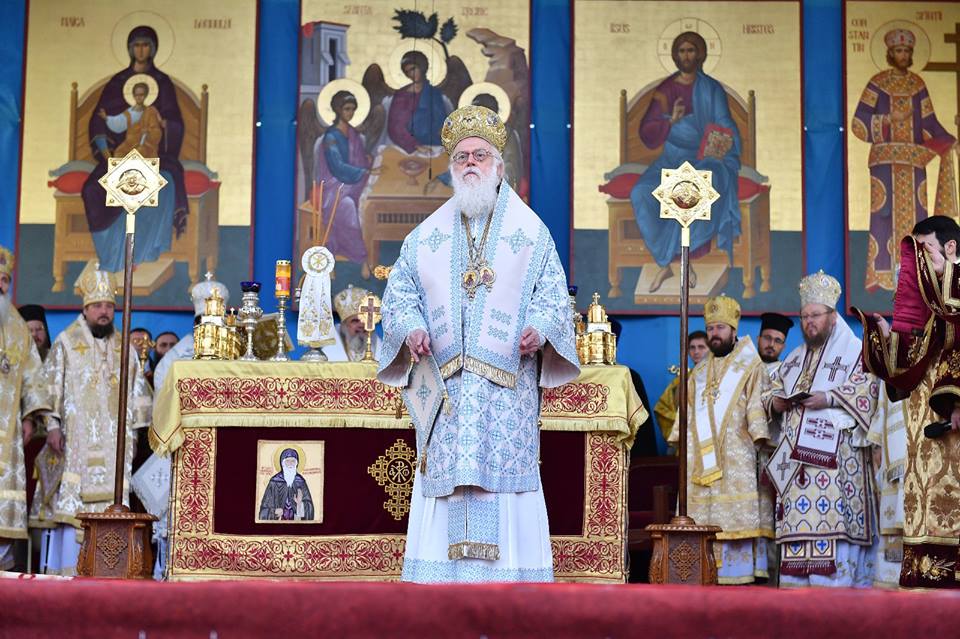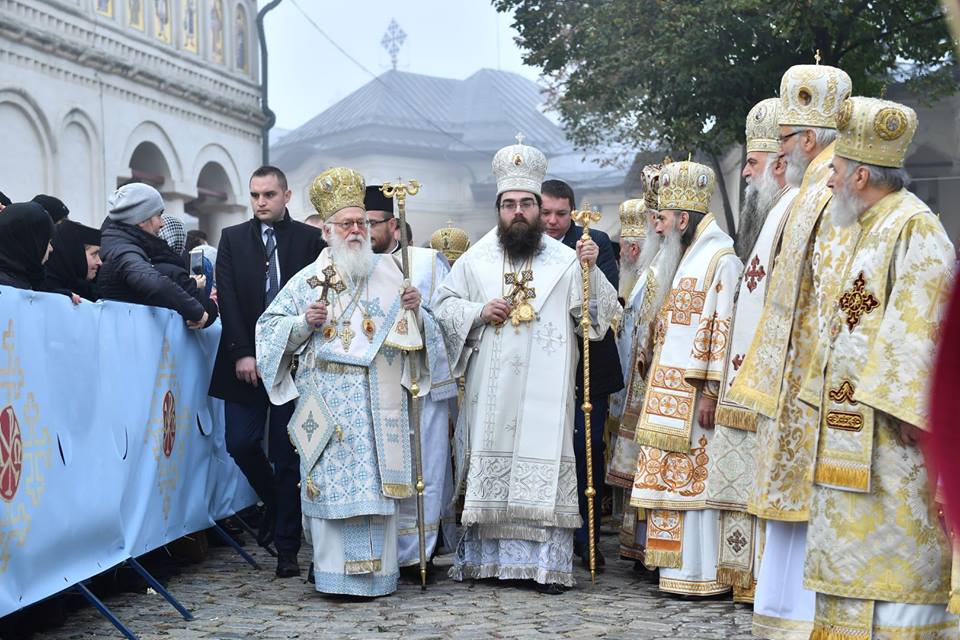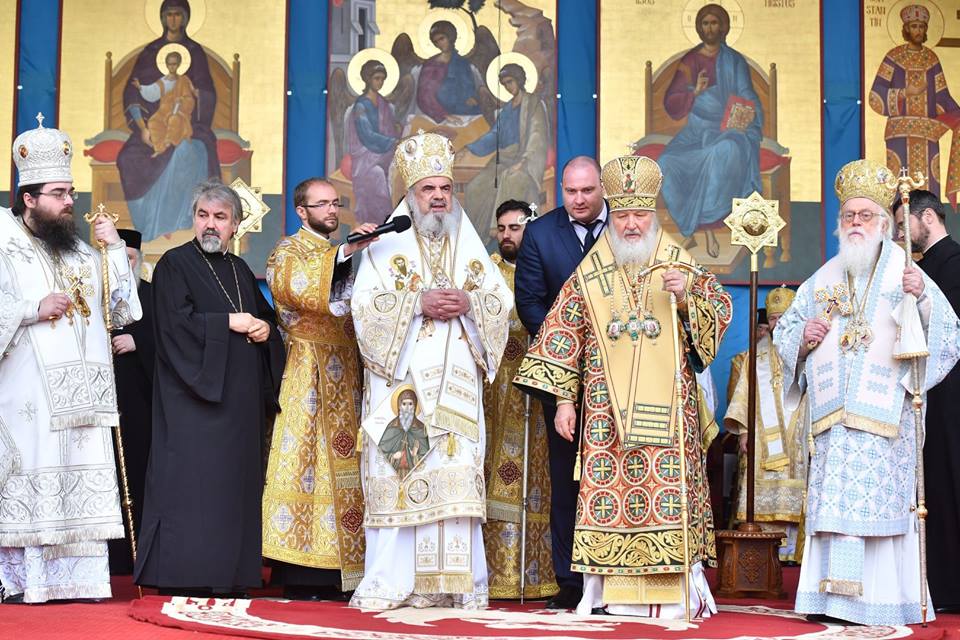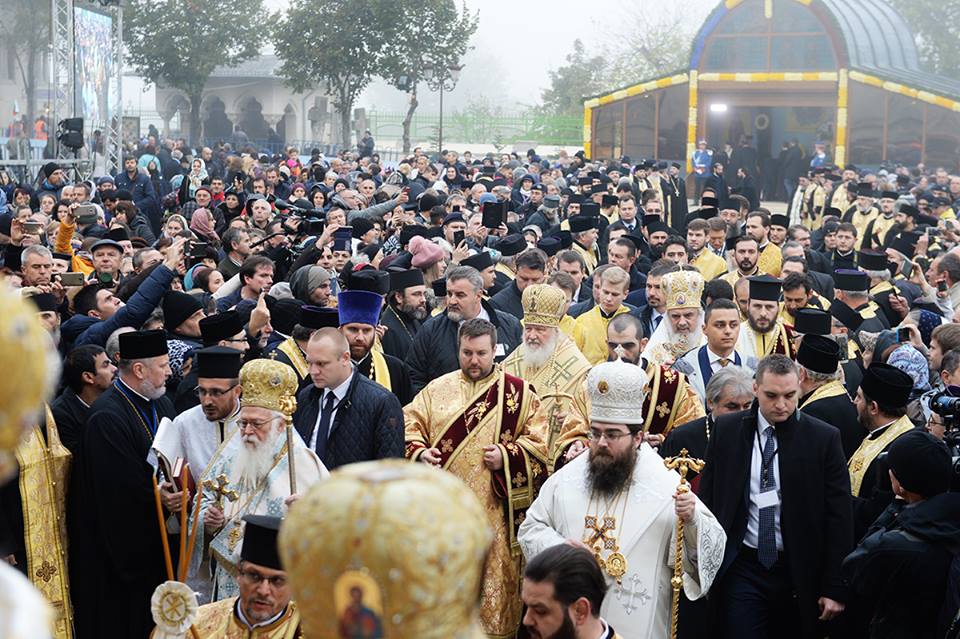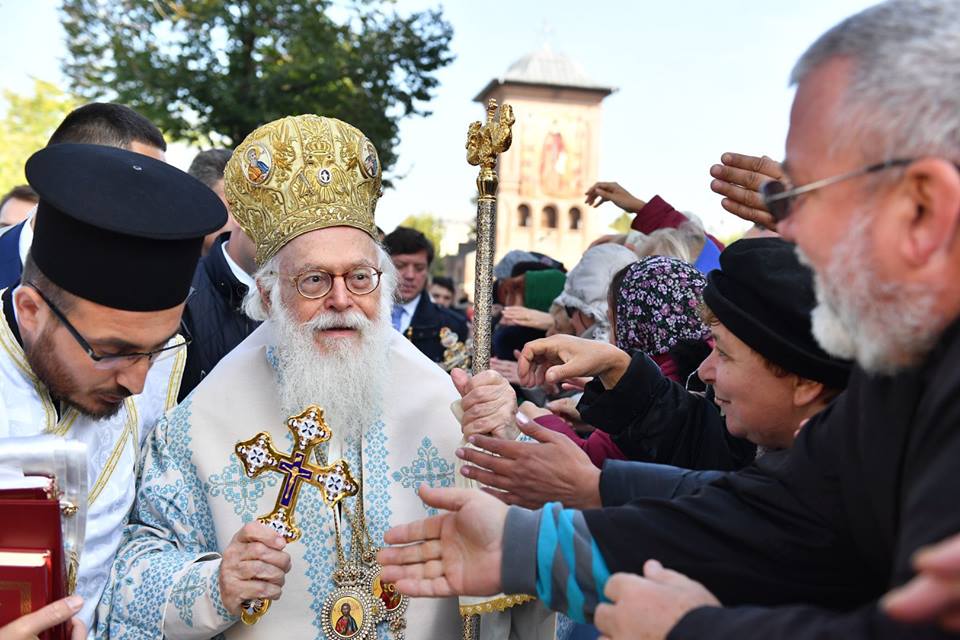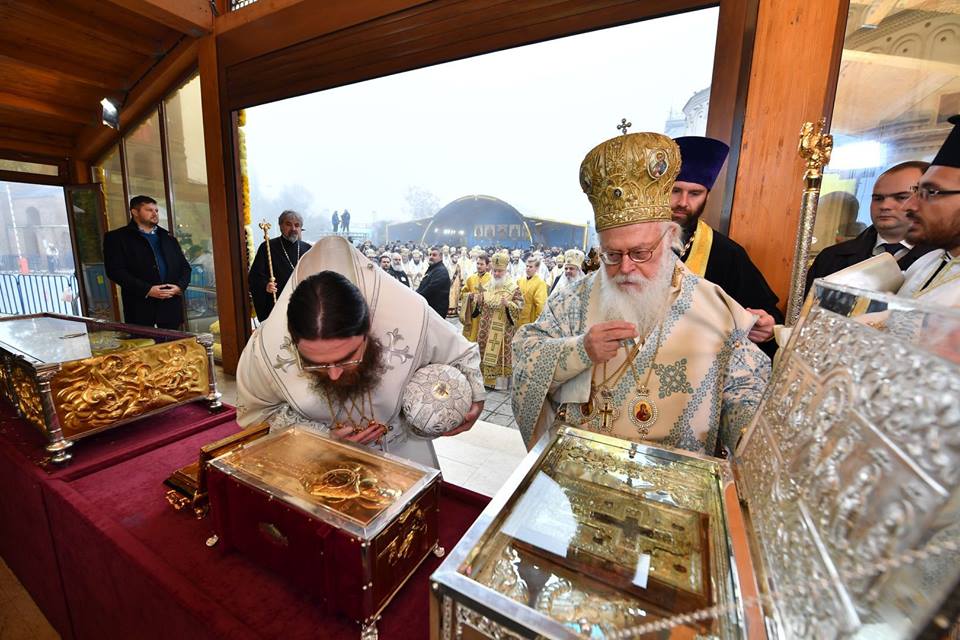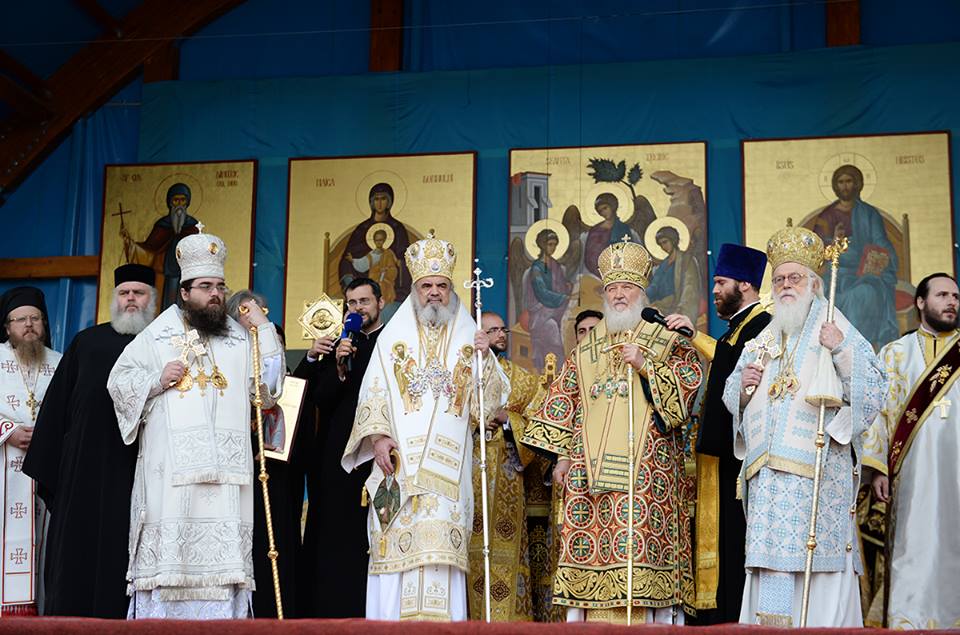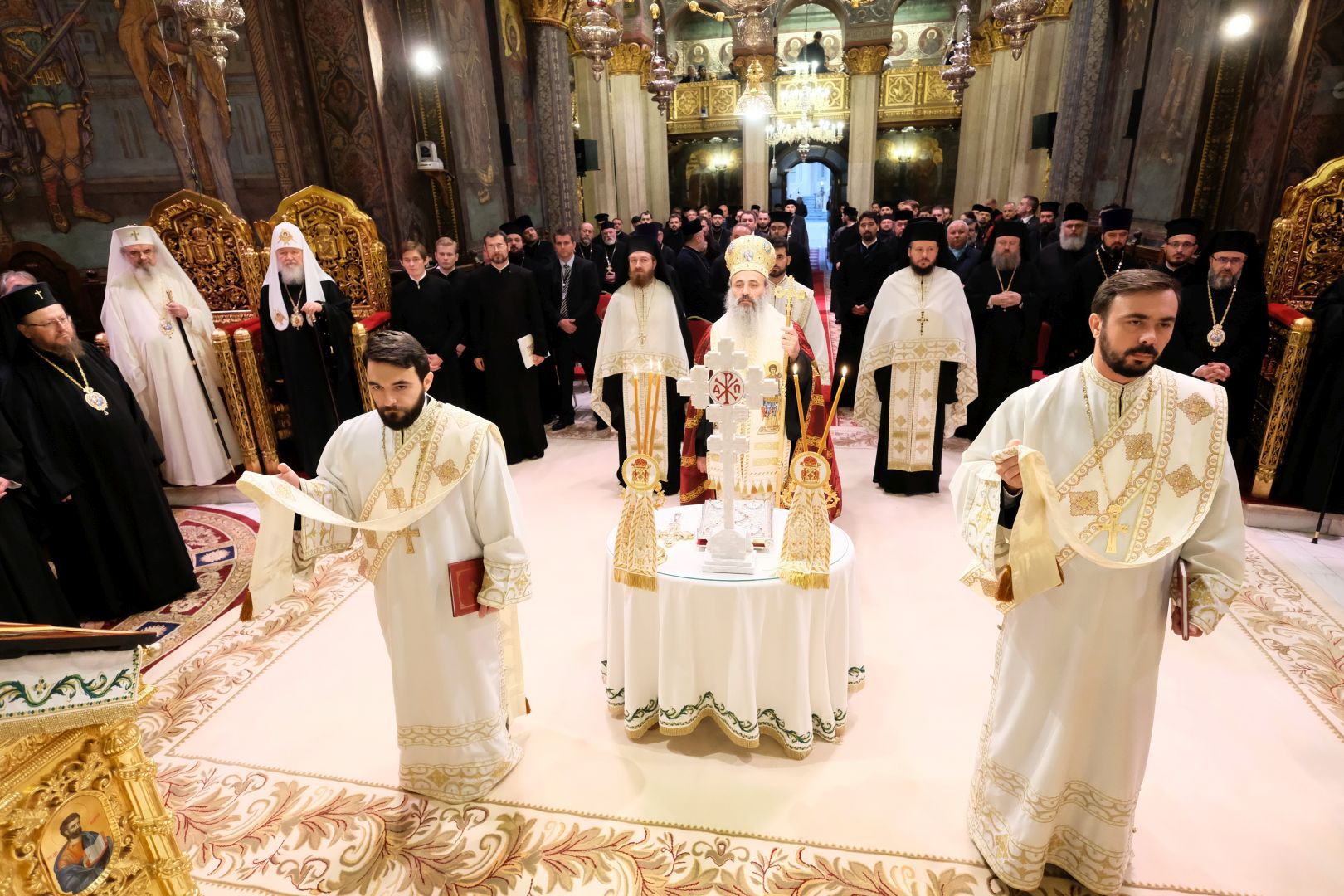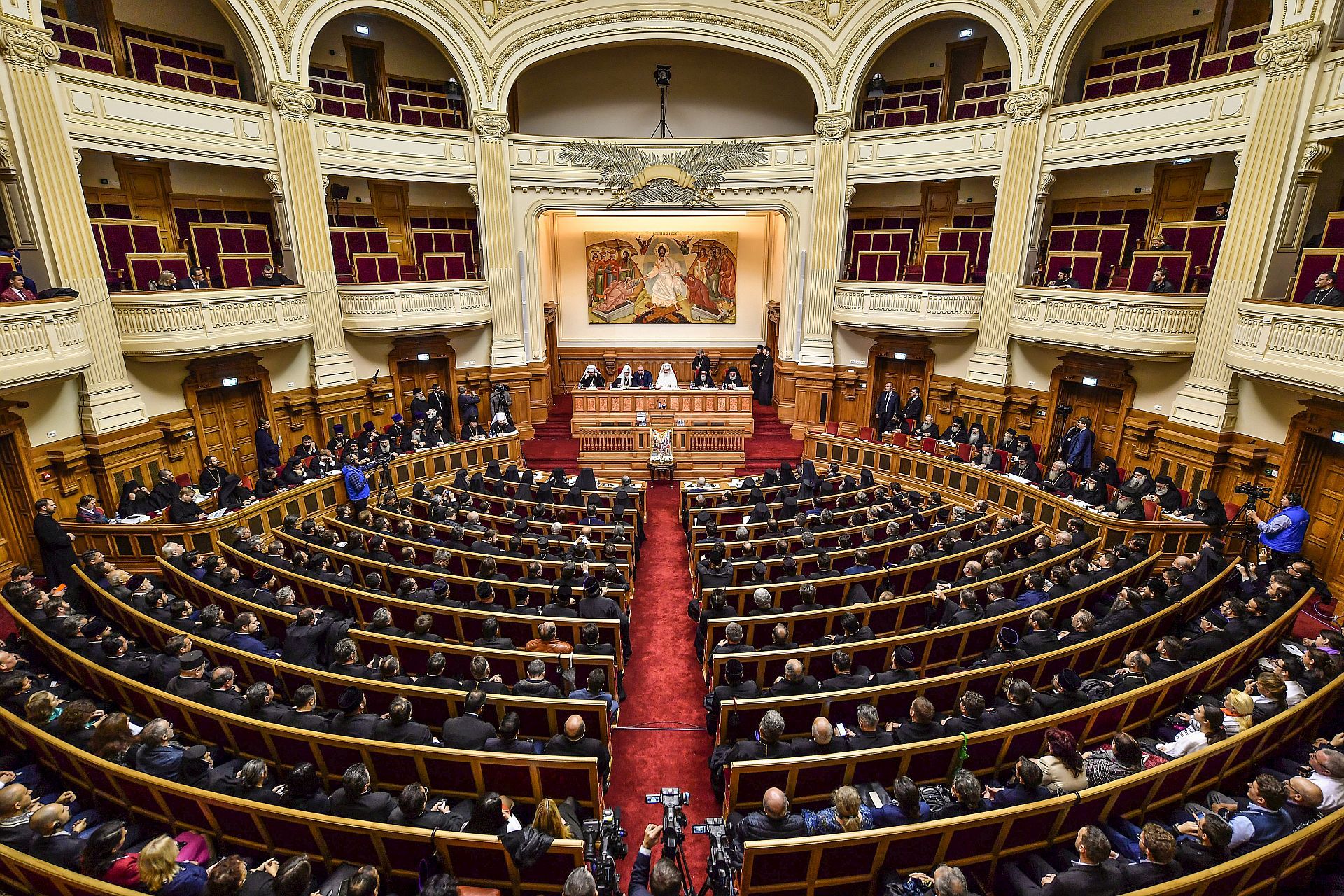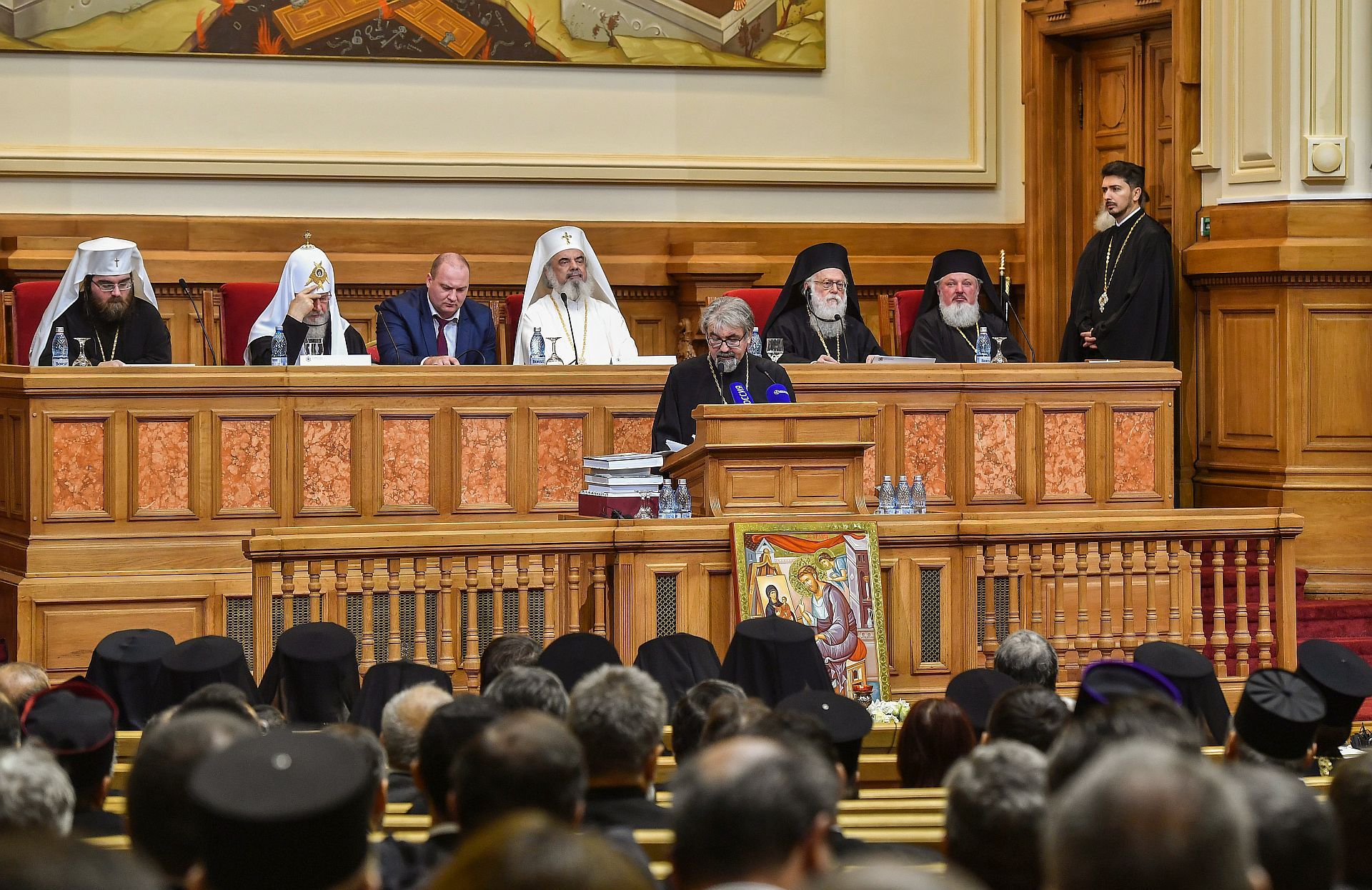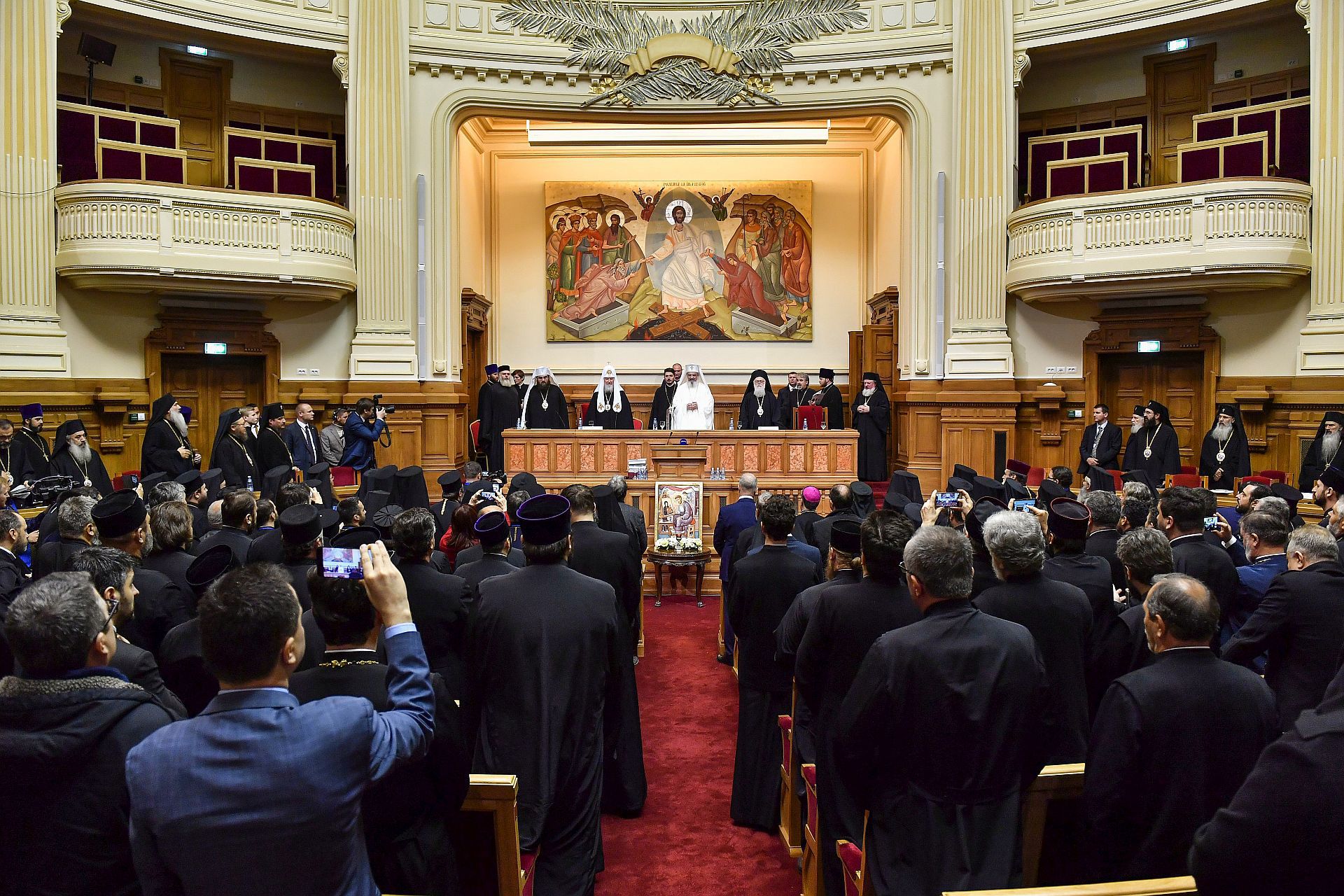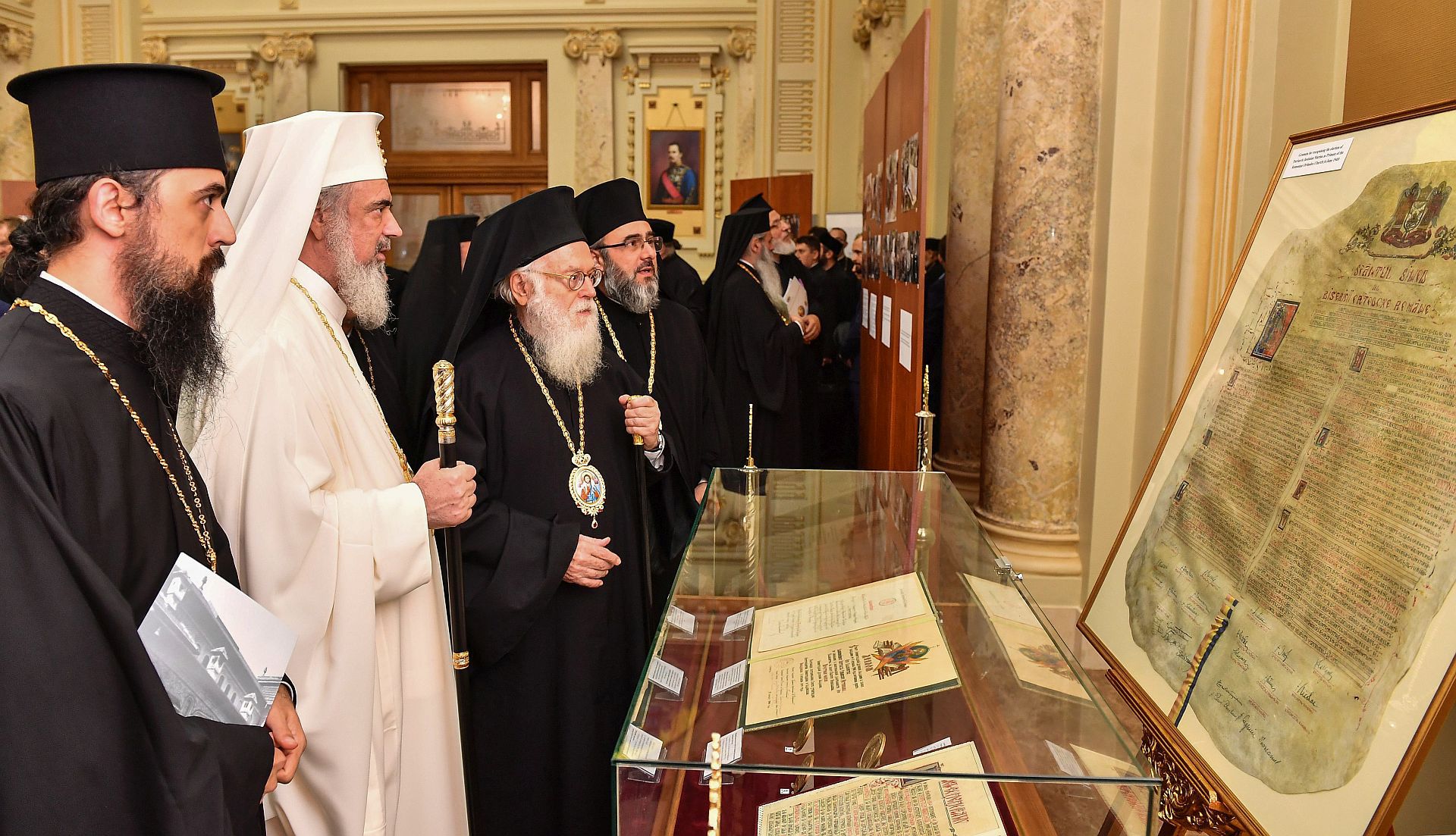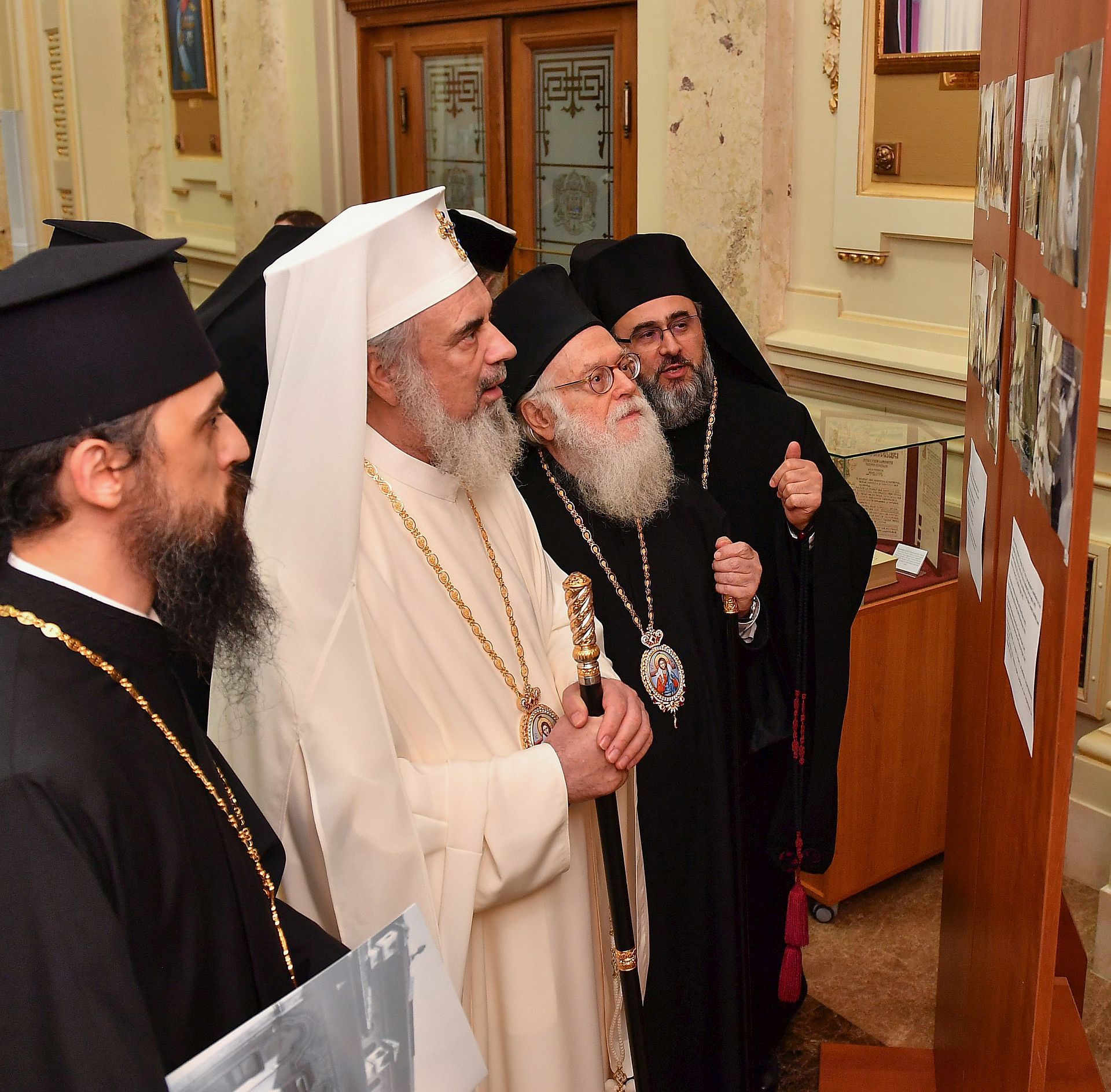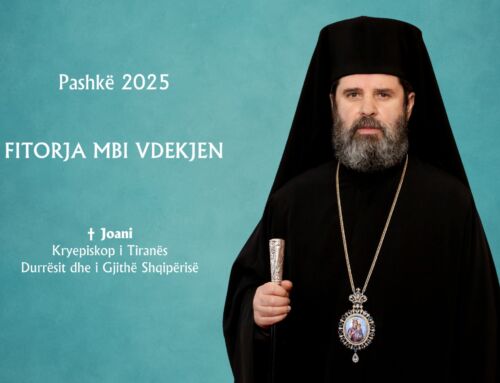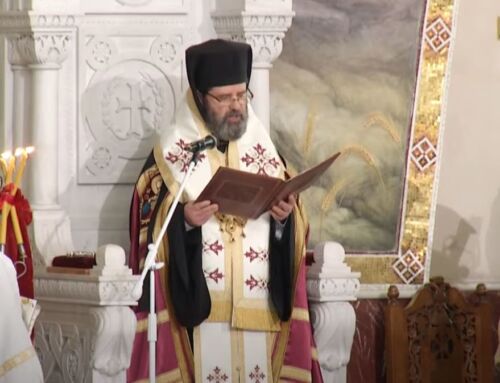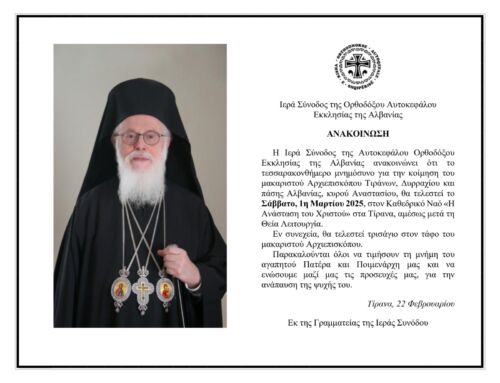The Romanian Orthodox Church announced the year 2017 as “The Remembrance Year of Justinian the Patriarch and of all Orthodox Patriarchs who lived during Communism”
In order to commemorate those who were persecuted during the period of communist totalitarianism in Romania due to their Orthodox faith, the Romanian Patriarchate organized the International Congress on “Life of Orthodox Churches during the Communist Regime: Persecution, Resistance, Evidence” which took place from 24 to 26 October 2017. Participants from various former communist countries referred to what had happened in their churches during this period. Mr. Pirro Kondili was the Albanian speaker who referred to the communist persecution in Albania.
The Autocephalous Orthodox Church of Albania was invited to participate in this event not only as a sister Church, but also as one of the churches that suffered the most wild and perhaps unique persecutions with total isolation and ban of faith in 1967.
Our Church was represented by Archbishop Anastasios, Metropolitan of Amantias, His Grace Nathanaili and Deacon Spiro Topanxha. The event was attended also by the Patriarch of Moscow, His Holiness Kirill, the Metropolitan of the Czech Republic and Slovakia, His Grace Rastislav, as well as several delegations from other sister churches.
On Friday, October 27, at the Bucharest Patriarchal Cathedral, the primates of the Orthodox churches concelebrated the Divine Liturgy on the occasion of Saint Demetrius (Besarabov) celebrations, who is also the patron saint of the Romanian capital. During the Divine Liturgy, a mnimosino (memorial service) was held in Romanian, Slavic and Albanian language to the memory of all those who witnessed and protected Orthodox faith sacrificing even their lives during the communist regime.
At the end of the Liturgy, congratulations and gifts were exchanged. Patriarch Daniel gave to Archbishop Anastasios the icon of Saint Demetrius claiming that, “We give to His Beatitude Anastasios, the icon of St. Demetrius, as a sign of appreciation and encouragement. Albania has been the only atheistic country in the world in which every religion was suppressed during communism, many clergymen were killed and all religious manifestations were banned.
During the period of communism, all Orthodox churches of different Eastern European countries suffered a lot, but Albania in particular experienced a cruel situation in terms of religion.
But then God allowed the rebirth of freedom as well as the free manifestation of religious practices. The Orthodox Church of Albania was risen from the dead due to the providential care and support of Archbishop Anastasios, whose name in Greek means “resurrection from the dead”. He is the person who was chosen by the crucified and resurrected Christ to resurrect the crucified Church of Albania.
Therefore, we greatly appreciate and admire such a grandiose work, which is an example to be followed by all the other Orthodox Churches. In a very short period of time, lots of churches were built and several social, philanthropic and medical institutions were set up to help children, families, the elderly etc. Not long ago, we participated in the consecration ceremony of the Resurrection of Christ Cathedral in Tirana. The Albanian people went first and built their own cathedral before we build our own. “
The above events were also held in the framework of the 10th anniversary of the election of Patriarch Daniel as head of the Romanian Orthodox Church. On this occasion, on Saturday 28 October, a Doxology took place at the Patriarchal Palace with the participation of all the present primates. Then all members attended the solemn meeting of the Holy Synod of the Romanian Church, where they talked about the difficulties of confessing the Orthodox faith during the period of atheistic persecution and the importance of religious freedom. During this meeting, Archbishop Anastasios spoke of communist persecution and religious freedom in modern Albania.
The participation of these delegations was not only an evidence of a difficult common past, but also of the strong ties that exist between the Orthodox churches nowadays based on the testimony of Orthodox Faith.
The program also contained a series of visits to holy places, churches and monasteries, where martyrs of communism had been buried as well as the “Praise God!” National Music Festival organized by the Romanian Church on this occasion.

